He moved on from the German Democratic Republic second division club BSG Bergmann-Borsig to Aston Villa in the Premier League and finished runner-up in 1992/93. The king of the dead ball at corners and free kicks joined Bayer 04 in 1997 and was our first goalscorer in the Champions League. He converted a penalty for the opening goal against Lierse SK in the first match in Europe's premier club competition. It was the only goal of the game where Paule was sent off on 77 minutes after a second yellow card.
He made 80 Bundesliga appearances and scored 24 goals in his three years under the Bayer Cross. He played for the national team with five international appearances under three different coaches: Berti Vogts, Erich Ribbeck and Rudi Völler. After his time at Bayer 04, Stefan Beinlich spends three years at both Hertha Berlin and Hamburg SV and then ends his playing career at Hansa Rostock at the age of 35.
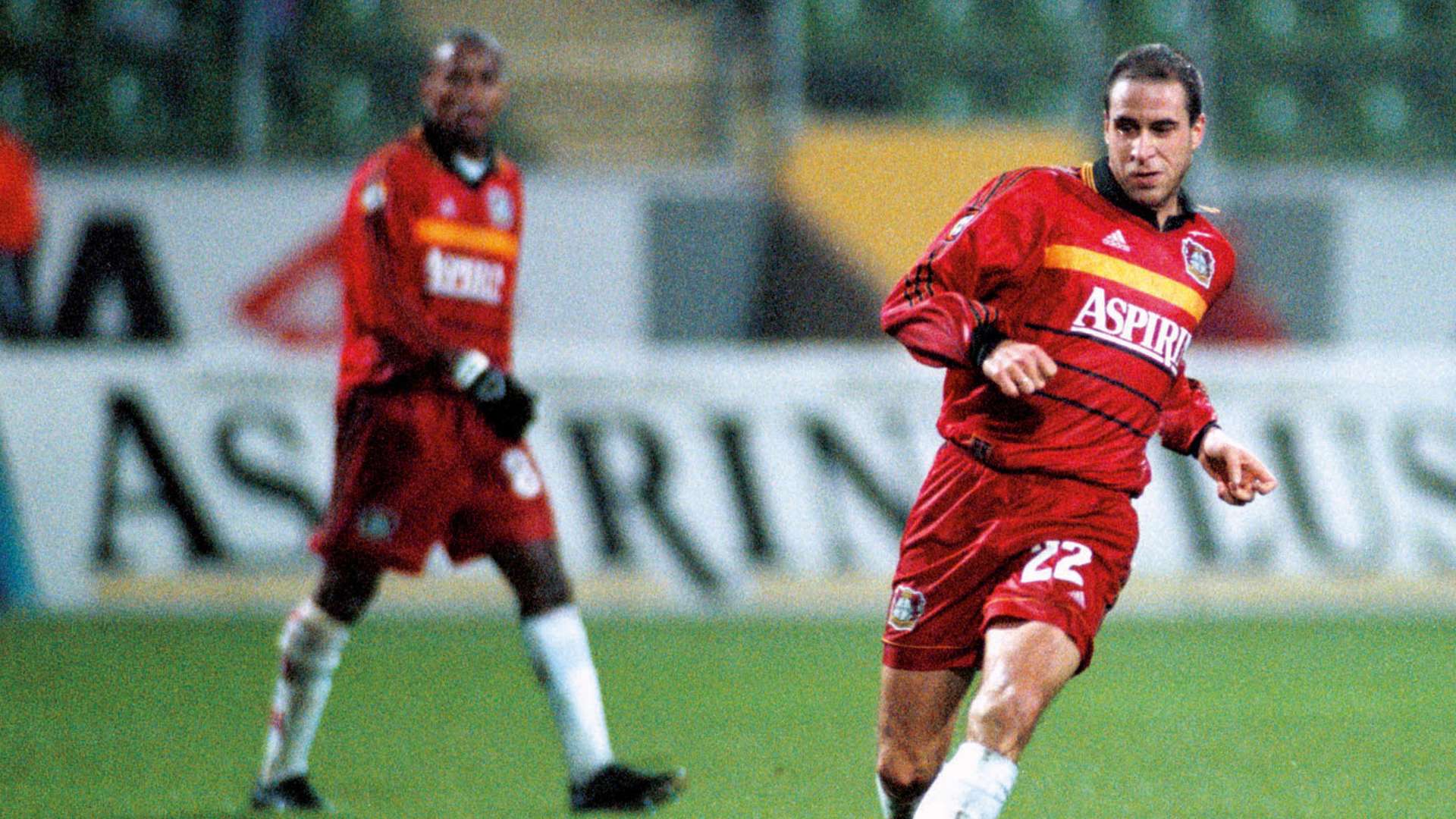
The father of three daughters is now the CEO at the Rostock Athletics Club. Paule will be 50 on 13 January and I maintain he could still find the top corner at the BayArena with his eyes closed from 23 metres out. Many happy returns on your birthday, Paule. I'll raise a glass to you.
The video shows a few goals from his time at Bayer 04.
Related News
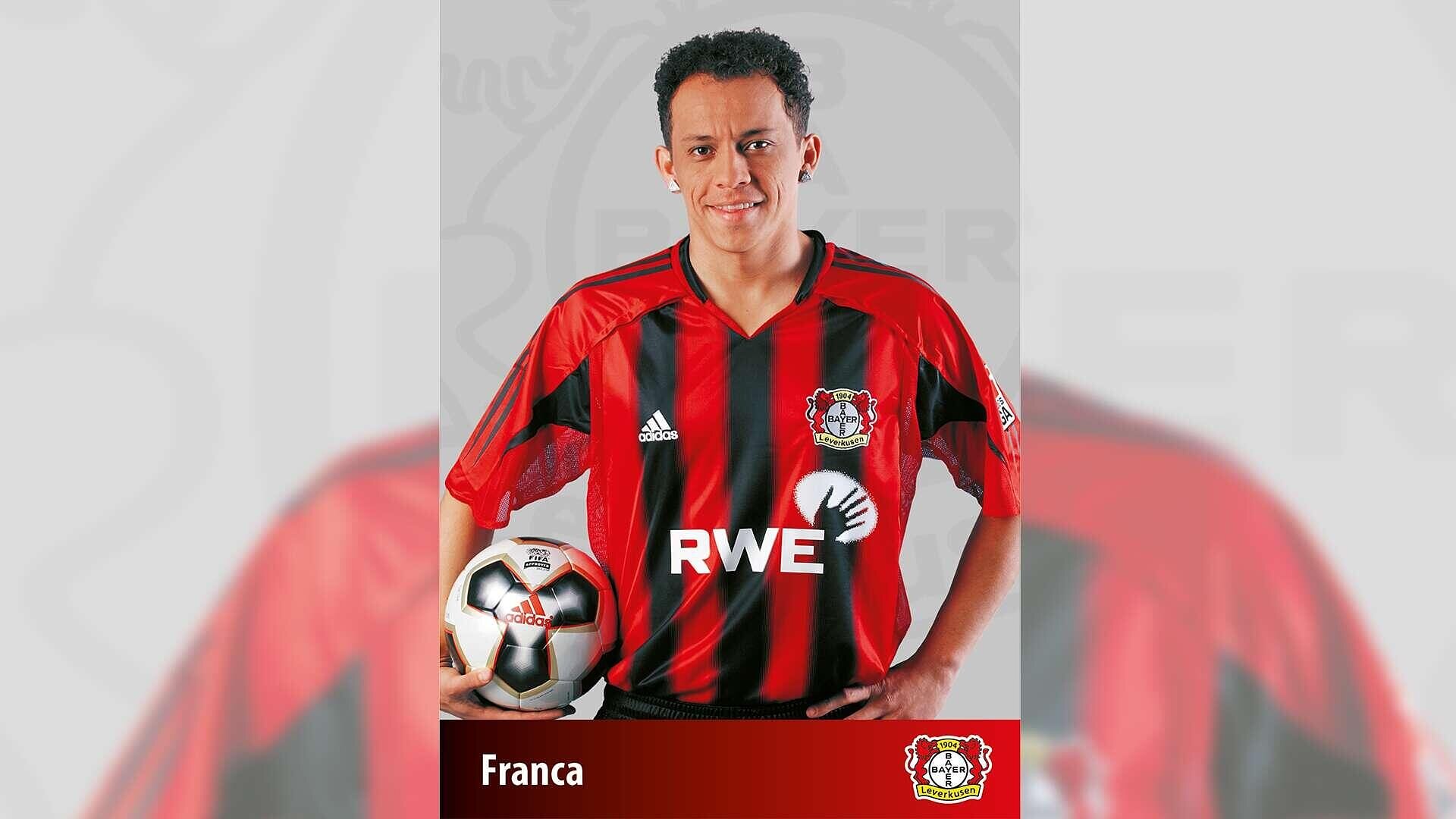
Birthday boy of the month: Franca turns 50
Francoaldo Sena de Souza, known as Franca, was born on 2 March 1976 in Codó in north-eastern Brazil and is one of the best-known Brazilian football players of the late 1990s and early 2000s. His exceptional talent became apparent early on. He began his career at smaller Brazilian clubs before moving to the tradition-steeped São Paulo FC in 1996. There, Franca quickly developed into one of the most dangerous strikers in the league. His technique, goal-scoring instinct and agility delighted fans and pundits alike, and he scored numerous goals for the club over the years.
Show more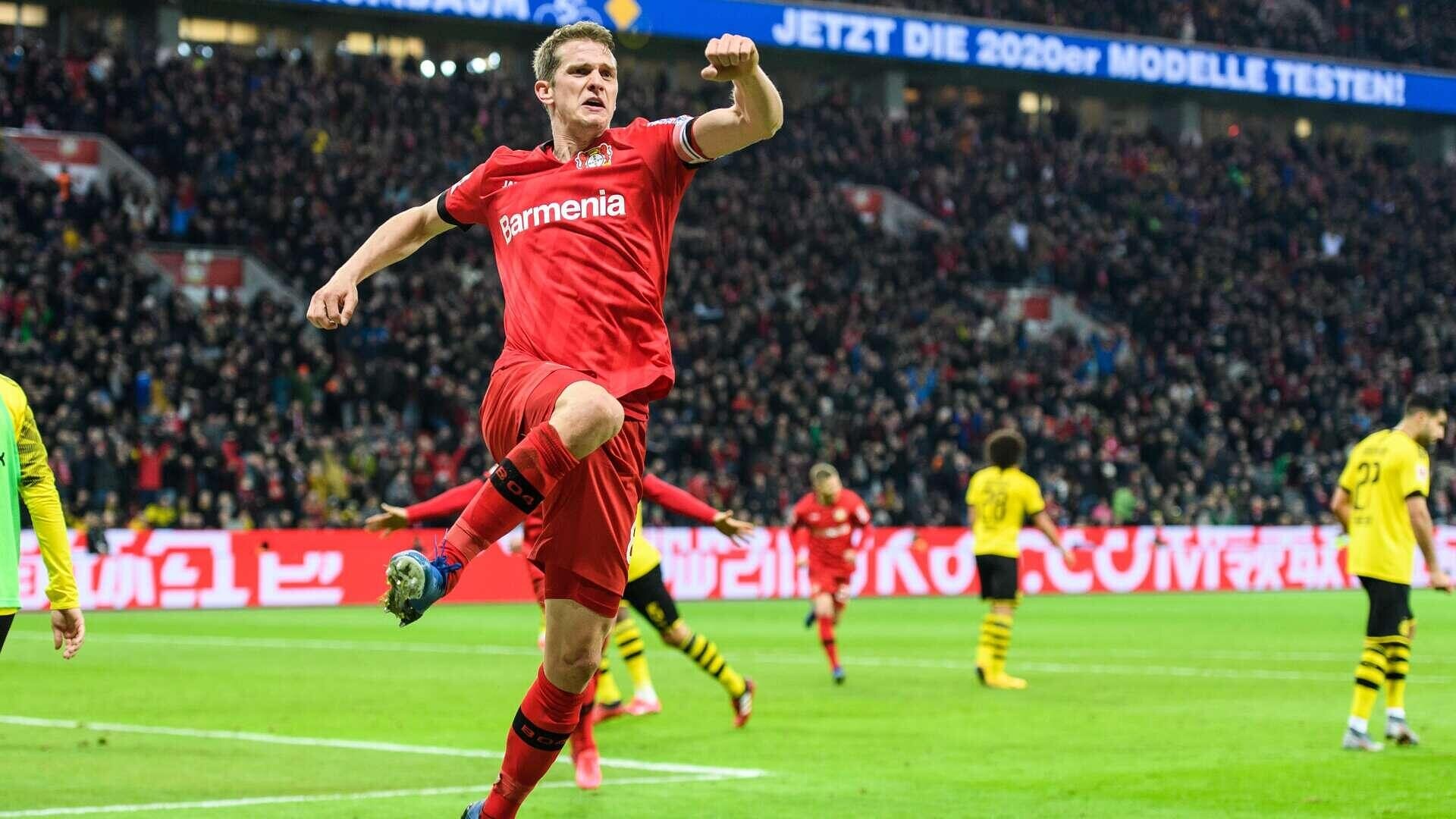
Legends: Lars Bender - The Bavarian at Bayer 04
Lars Bender was born on 27 April 1989 in Rosenheim and grew up with his twin brother Sven in a football-loving family. They began playing football in Brannenburg, a small community near Rosenheim. The twins joined Unterhaching to play for the U11 side, followed by a move to the U14s at 1860 Munich. There, Lars and Sven became German champions with the U17s, skipped the Lion's U19s and were directly part of the 1860 Munich first and second team squads.
Show more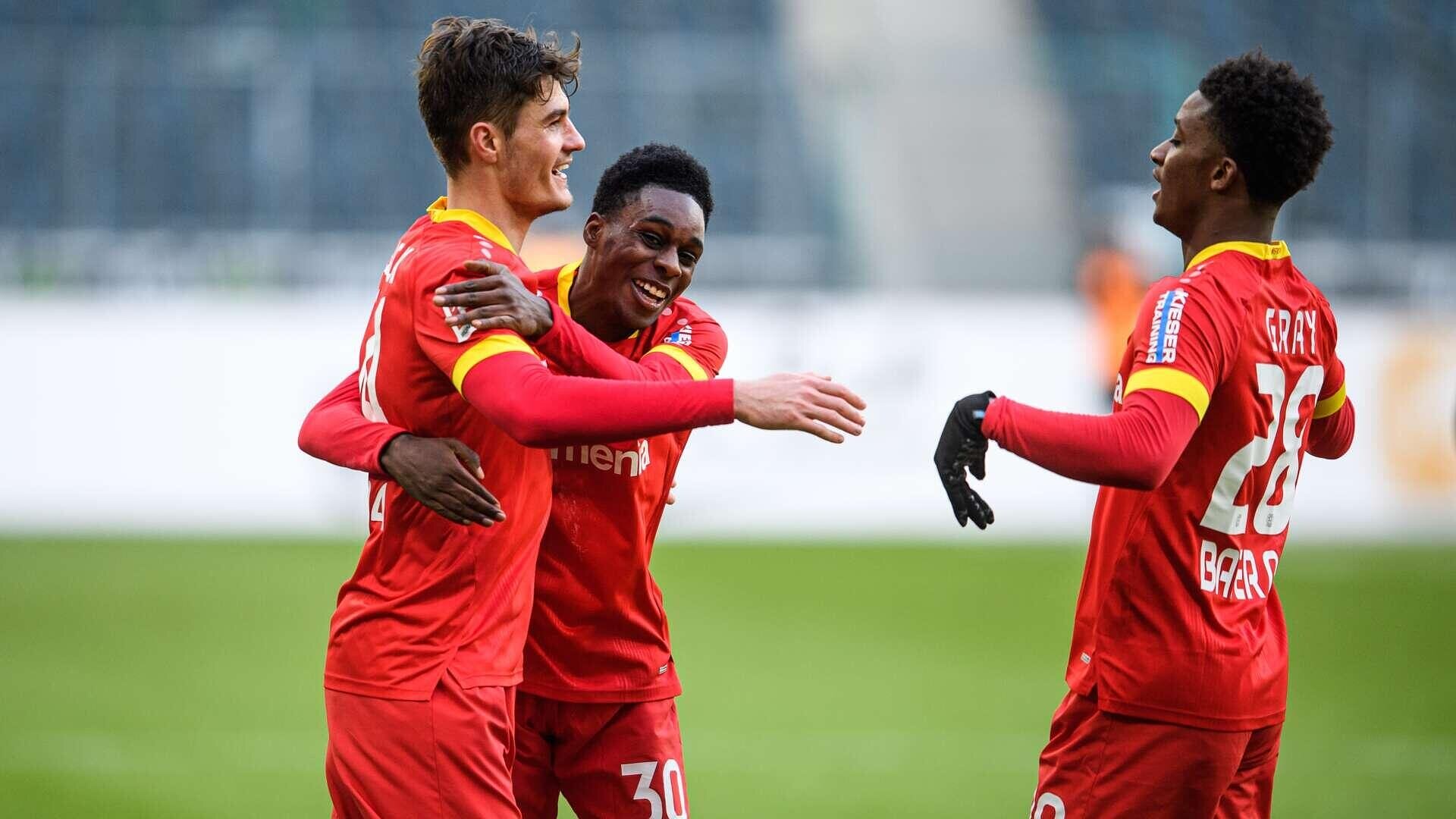
Goals of the month: From Bruckmann to Schick
In this video you can see impressive and important goals in Bayer 04 history from the month of March . It's not always about the beauty of the goals, but also a reminder of special games and players.
Show more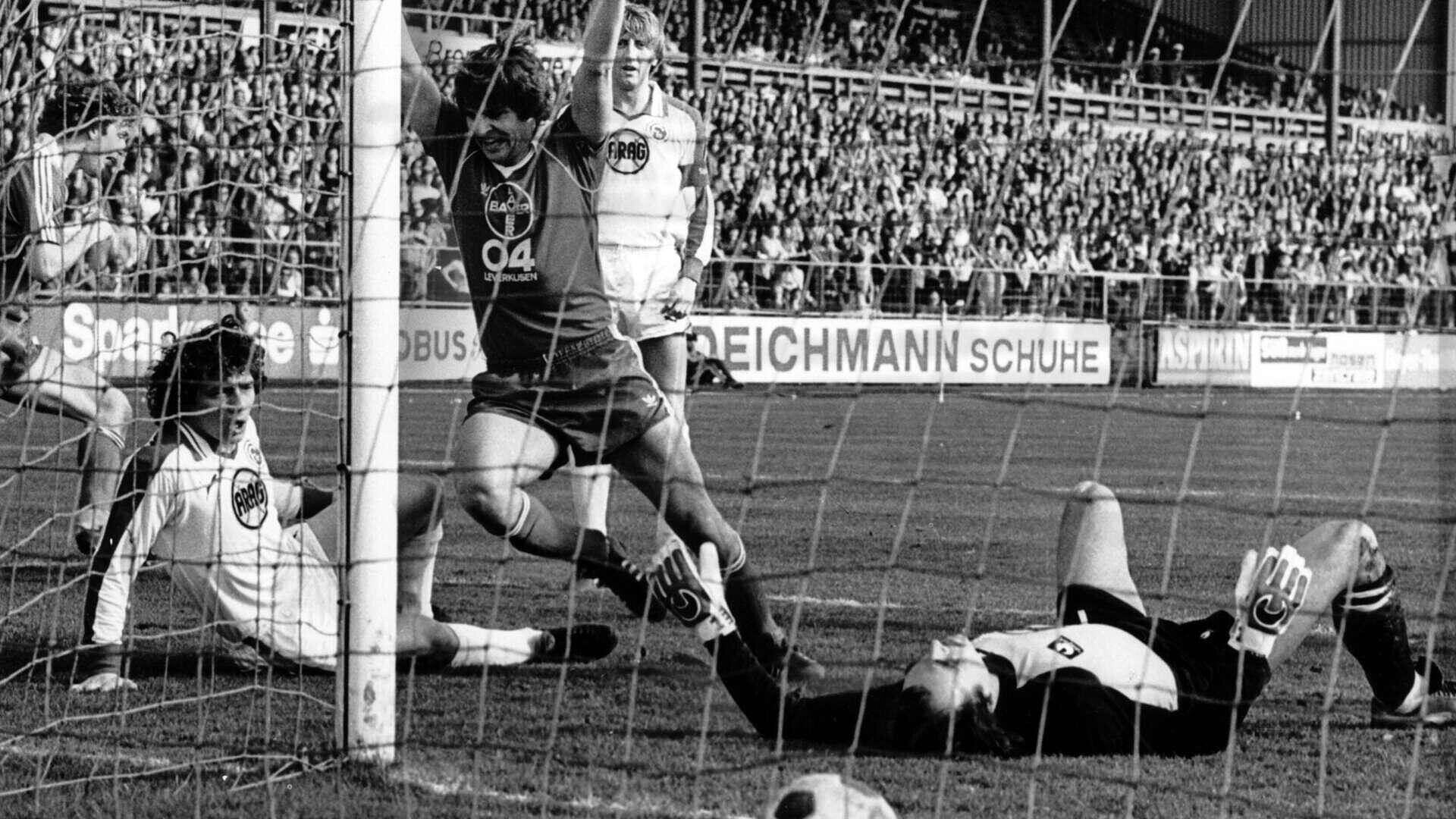
Match of the month: 45 years ago - A victory is needed
Bayer 04 had their backs to the wall after a 3-1 defeat in a rearranged match at FC Kaiserslautern on 17 March 1981. After a throw-in, which the linesman clearly indicated in favour of the Werkself, but which the Lauter team quickly took and the weak referee did not intervene, a dubious penalty was awarded. Lauter took advantage of this to make it 2-1 in the 84th minute. Finally, a shot by the home side, which did not cross the line, made it 3-1 and Bayer 04 had to go home from Betzenberg without any points.
Show more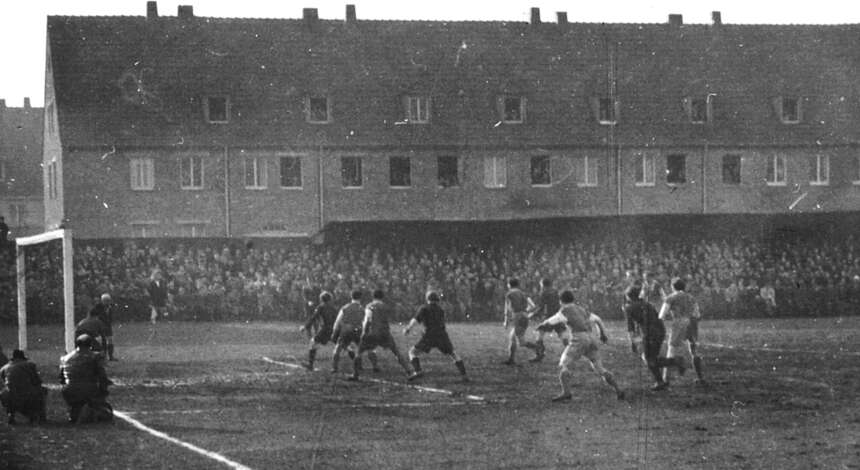
History: 75 years ago - The 1950/51 season (March)
It was 4 March 1951 and Bayer 04 were five points ahead going into the decisive home game against second-placed SSV Wuppertal, who would merge with TSG Vohwinkel 80 to form Wuppertaler SV three years later. Bayer 04 press officer Heinz Nelles predicted a big matchday at the sports ground at the Stadtpark and recommends Bayer 04 fans to buy their tickets in advance from the usual ticket outlets, especially from Peter Haas at the Trinkhalle Rathaus. After a four-week injury lay-off, centre-forward Emil ‘Bubi’ Becks will be back for the first time. And when the gates to the Stadtpark are opened on Sunday, the spectators stream into the stadium. The windows of the houses on the neighbouring Walter-Nernst-Straße are also packed.
Show more